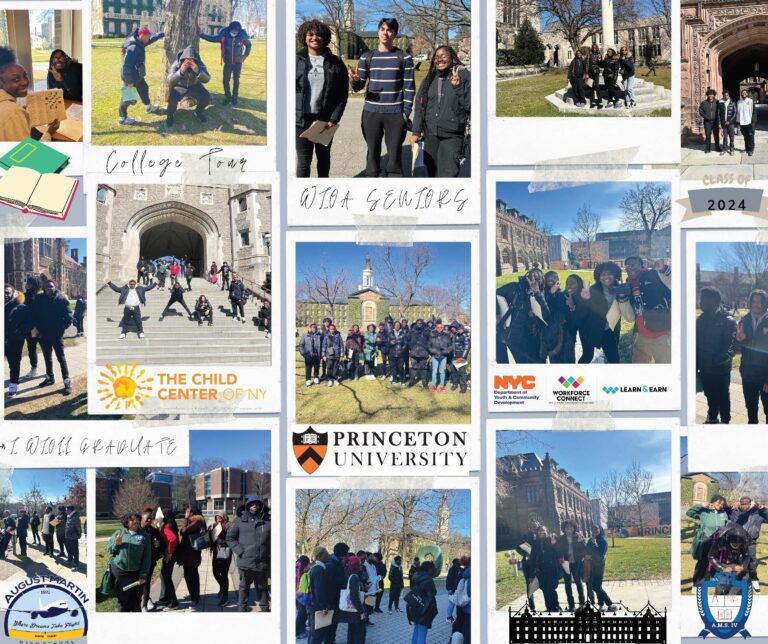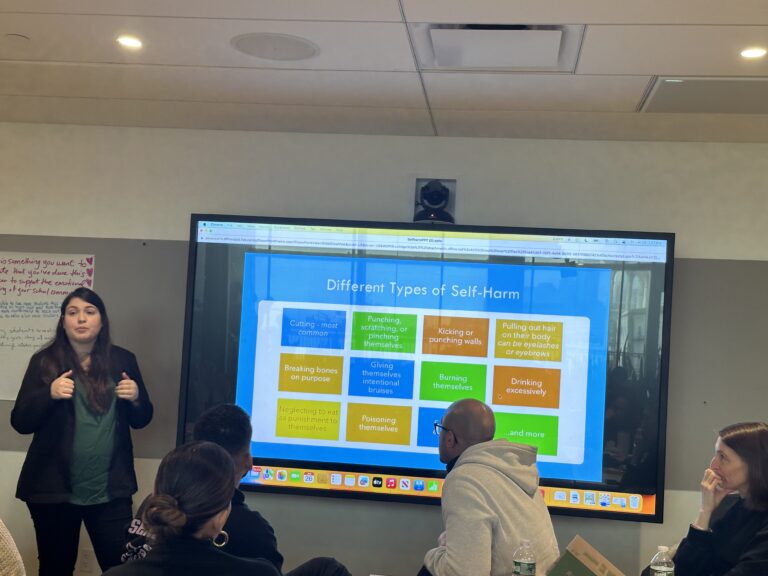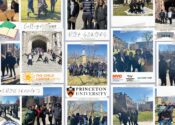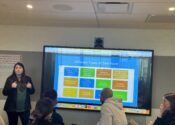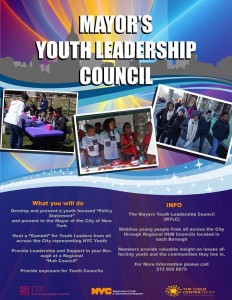 From Occupy Wall Street to the Black Lives Matter protests, it’s clear that today’s youth are demanding change. Less clear are the avenues young people can take to make a tangible difference on the issues they care so much about. That’s why The Child Center of NY is excited to partner with the NYC Department of Youth and Community Development and the Youth Development Institute on a new initiative called the Mayor’s Youth Leadership Council. The MYLC will enable teens throughout the five boroughs to work on a specific policy change and present a plan to the mayor. It’s a unique opportunity for youth from all types of backgrounds to learn to put their idealism into action.
From Occupy Wall Street to the Black Lives Matter protests, it’s clear that today’s youth are demanding change. Less clear are the avenues young people can take to make a tangible difference on the issues they care so much about. That’s why The Child Center of NY is excited to partner with the NYC Department of Youth and Community Development and the Youth Development Institute on a new initiative called the Mayor’s Youth Leadership Council. The MYLC will enable teens throughout the five boroughs to work on a specific policy change and present a plan to the mayor. It’s a unique opportunity for youth from all types of backgrounds to learn to put their idealism into action.
Twenty young people will be chosen to serve on the Mayor’s Youth Leadership Council, but, as Tracy Garcia, DYCD Director of Service Learning Programs, puts it, “We’re not only involving the most articulate youth in their high schools or most active youth in student government.” Instead, we are looking for young people who believe they can make a difference; will meet the time requirements of the mandate; and, most important, have a passion for this kind of work. That’s really all that’s needed. Participants will be chosen from 10 regional hubs comprised of teens from local youth councils. Any high school student who is part of a preexisting youth council—whether it be at a school, house of worship, or a Beacon or Cornerstone program—can apply to be part of a regional hub. This will ensure a broad cross-section of the city’s youth and avoid any “creaming.” MYLC representatives will also be expected to stay connected with their regional hubs, which will further ensure that the dialogue continues at a grassroots level.
The first step for the members of the MYLC will be to identify a policy they agree on and that represents the priorities of their local councils. The policy can be on any topic—the environment, violence, police relations—anything about which they feel strongly and on which they believe they can make an impact. The next step is developing a clear policy and detailed plan that they will deliver themselves to Mayor de Blasio in June.
We expect the experience to be intense, educational, and, above all, inspiring. Together with YDI, The Child Center will be providing MYLC members with training in such areas as public speaking, policymaking, research, problem-solving, networking, and presenting yourself in a way that gets you respectfully heard. In short, we will show them what goes into translating a desire for change into actual change, and that they are capable of making it happen.
The exercise isn’t theoretical. In addition to meeting with the mayor, regional hub members will receive a mini-grant—up to $10,000—from DYCD to promote their cause. They will have to work together to review RFPs and decide who should receive how much. I can’t think of a better way to complement what they learn in social studies class. Just as we’re beginning to teach STEM the right way with hands-on scientific experimenting, so now is this a chance to teach government and citizenship through hands-on policymaking—and we should encourage as many young people as we can to be a part of it. It’s not too late for any 14- to 18-year-old to get involved in the process by joining a local youth council. Those already involved in a youth council can apply to be a part of their regional hub.
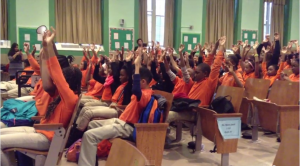 This past week, a team comprised of Garcia; Sabrina Evans Ellis, Executive Director of YDI; Deep Ghosh, The Child Center’s Associate Executive Director of Youth Development and Community Engagement; regional hub leaders, and myself interviewed applicants from Far Rockaway, Bronx, Staten Island, and Manhattan (Brooklyn interviews are happening this week). We left very excited about the prospective members. The teens were excited, prepared, and extremely impressive. The selection process will not be easy. These young people were able to passionately articulate the serious issues in their communities—issues that ranged from immigration, gun violence, gangs, the need for more community resources, and drugs. Some of these teens came from extraordinarily difficult circumstances. Many were overage and under-credited. And too many had never been given a chance to understand how they can contribute to their communities. To see how resilient and empowering they were was humbling. That is why I am so grateful to DYCD for funding this program—and DYCD is excited to be supporting it.
This past week, a team comprised of Garcia; Sabrina Evans Ellis, Executive Director of YDI; Deep Ghosh, The Child Center’s Associate Executive Director of Youth Development and Community Engagement; regional hub leaders, and myself interviewed applicants from Far Rockaway, Bronx, Staten Island, and Manhattan (Brooklyn interviews are happening this week). We left very excited about the prospective members. The teens were excited, prepared, and extremely impressive. The selection process will not be easy. These young people were able to passionately articulate the serious issues in their communities—issues that ranged from immigration, gun violence, gangs, the need for more community resources, and drugs. Some of these teens came from extraordinarily difficult circumstances. Many were overage and under-credited. And too many had never been given a chance to understand how they can contribute to their communities. To see how resilient and empowering they were was humbling. That is why I am so grateful to DYCD for funding this program—and DYCD is excited to be supporting it.
“As a youth development agency, we know the challenges that are out there for young people across the city and around the country,” explains Garcia. “This is a great opportunity to offer youth voice and youth choice to young people and give them a platform where they can address concerns they have about their communities.”
Garcia also highlights how hungry today’s youth are to go beyond posting their thoughts on social media: “When a young person participates in a retweet or they’re reposting something or they join a march—they wake up the next morning, and did anything actually happen? This is how you continue that.” Garcia hopes that this initiative will make the connection between those types of activities and the next steps a little clearer for the teens involved by “getting them to understand why it’s important for them to express themselves and how is the best way to express themselves—and you do that by becoming civically engaged. We want to be the vehicle through which they can develop these skills.”
The bottom line: We want all youth to know that effecting real societal change is hard work, but worth the effort—and always possible.
Rachelle Valbrun
Youth Development Coordinator
